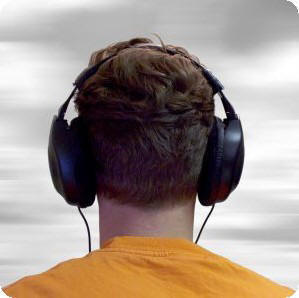|
ESL Podcasts
English as a Second Language
Writing
Grammar
Listening
Podcasts
Academic Writing
and More! |
|
|
|
|
||
|
Visit Our Free Library: MP3 Audio Stories, Activities, How To's, Grammar Lessons and Grammar Exercises, Listening Comprehension, Essays, American Culture |
||
|
|
||
|
See a sample of our
Today's Date
Are You Looking for
|
Many people who immigrate to
the United States and who need to improve their English language skills
may already know two or three other languages, so English is not
their second language but maybe their third or fourth or even fifth.
Many people who live in English-speaking countries outside of the United
States, Canada, and Great Britain need lots of help with their writing
and grammar. Many people in the United States grow up
bilingual
:
They speak one language at home and another at school, or they may even
have two different languages spoken at home. Students from such
families present a conflict for writing teachers, who do not always
know into which writing classes
to place
these students: Are
they placed in ESL classes, even though English is their
native language
,
or are they placed in regular English classes even though they have
many ESL-type problems in their writing and at home do not often read
in English?
The bottom line
is that in every country of the
world, people are learning to speak, read and write additional languages.
Music Copyright,
permission of Luca De Bernardi |
Would you like to try some of the lessons in
Our Librarry?Now
You Can! 
Custom Search
Your Comments, Please! Do You Have A Comment or Question for us? Click HERE to Contact Us. You may see your question and our answer on our blog!
Subscribe to Our Feed |
|
copyright 2006-2008 Software for Students |
||

 Welcome to
Welcome to